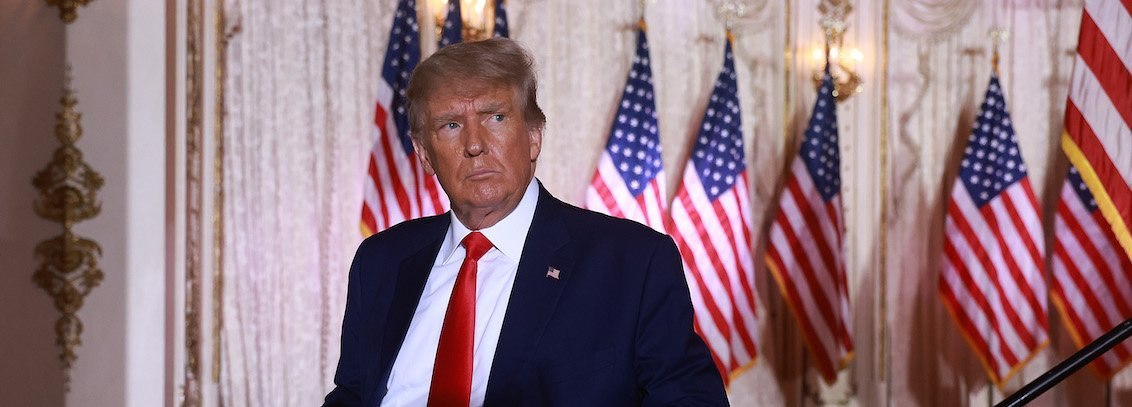Manhattan prosecutors recently invited Donald Trump to appear before a grand jury, signaling that an indictment of the former president may not be far off. The case involves a payment of $130,000 of hush money paid by Trump's former fixer in 2016 to adult film star, Stormy Daniels, who claimed to have had an affair with the former president in 2006.
To understand how Americans' views on the subject have changed over time, new polling by the Economist and YouGov revisited a series of questions we first asked in 2018, not long after details on the payments first became public. Over this period, we've observed a dramatic increase in the share of Americans who view as crimes certain allegations leveled against Trump — paying someone to remain silent about something that could affect an election outcome, as well as failing to report such payments as campaign spending. The increase has been particularly large among Republicans. While these questions may no longer be as polarizing without the specific context of their connection to Trump being as prominent in Americans' thinking, there has also been a more moderate increase in the share of Republicans who say they view the specific allegations against Trump as a serious issue.
Shortly after the payment to adult film star Stormy Daniels became public in 2018, an Economist/YouGov poll asked Americans —without mentioning Trump — whether it is a crime for a candidate to pay someone to remain silent about an issue that may affect the outcome of an election. Since then, the share of Americans who say it is a crime has risen 16 percentage points, to 72% from 56%. Nearly all of this shift is concentrated among Republicans: 73% now believe it is a crime, up 36 points from 37% in 2018.
There was a similar increase over this period — also driven by Republicans — in the share of Americans who say it's a crime for a candidate to "fail to report spending campaign money on payments to keep someone silent about an issue that may affect the outcome of an election."
For many Americans, including many Republicans, the charge that the Trump campaign paid an adult film actress $130,000 to remain silent about an alleged sexual encounter with the former president is concerning. Nearly half of Republicans (45%) view it as a very or somewhat serious issue; 87% of Democrats and 65% of Americans overall agree. Five years ago, fewer described this as at least a somewhat serious issue
At the same time, the hush-money allegations may have faded from the memories of many Republicans over time. In both March and August of 2018, roughly eight in 10 Republicans said they'd heard at least something in the news about an adult film actress who was paid to remain silent about an alleged sexual encounter with Trump. Now, just 61% say they've heard about the allegations. The decrease in the share of Democrats who have heard about the accusation over this period is much smaller.
— Carl Bialik and Linley Sanders contributed to this article
See the toplines and crosstabs from the Economist/YouGov poll conducted on March 11 - 14, 2023 among 1,500 U.S. adult citizens.
Methodology: Respondents were selected from YouGov’s opt-in panel using sample matching. A random sample (stratified by gender, age, race, education, geographic region, and voter registration) was selected from the 2019 American Community Survey. The sample was weighted according to gender, age, race, education, 2020 election turnout and presidential vote, baseline party identification, and current voter registration status. Demographic weighting targets come from the 2019 American Community Survey. Baseline party identification is the respondent’s most recent answer given prior to June 1, 2022, and is weighted to the estimated distribution at that time (34% Democratic, 31% Republican). The margin of error for the overall sample is approximately 3%.
Image: Getty (Joe Raedle / Staff)










